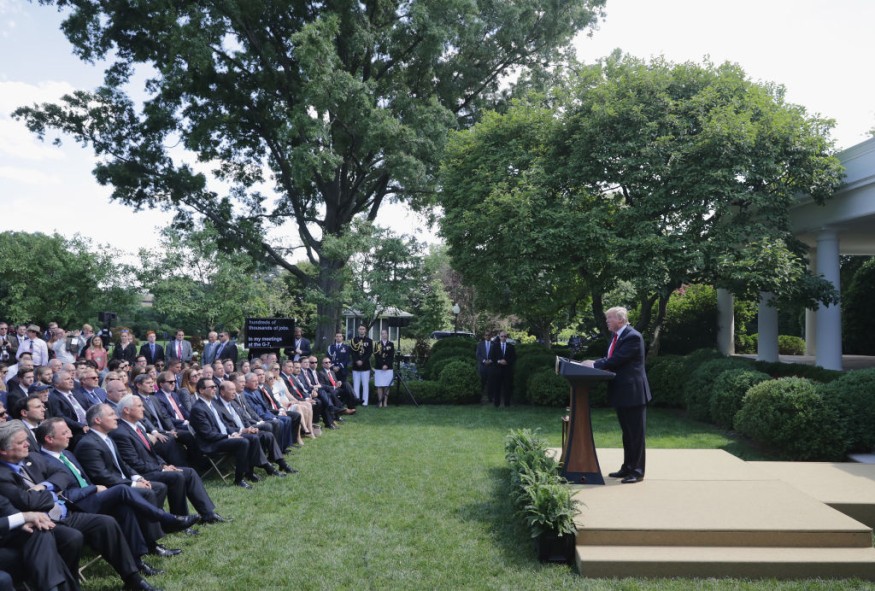The Paris Agreement landmark deal was struck in 2015 to limit global warming to "well below" 2 °C above pre-industrial temperatures. The United States officially pulls out of the Paris Agreement on November 4. How will this affect the international efforts to stop global warming?
Nature featured how the withdrawal will affect global efforts to mitigate climate change:
How is the Paris Agreement faring in a nutshell?
In September, China announced its plans to make the country's economy carbon neutral by 2060. China is the world's top emitter of greenhouse gases.
Meanwhile, the European Union (EU) is packed with the EU's Green Deal, which set a road map for making the bloc carbon neutral by 2050 using various strategies like tapping renewable energy, nuclear power, and carbon capture. EU has reduced its greenhouse-gas emissions by 24 percent compared to the 1990 levels. Lawmakers are discussing policies on how to attain full carbon neutrality.
Japan and South Korea made commitments to be carbon neutral by 2050, but details on how to get there were not year detailed.
More than 60 countries worldwide, including all EU member states except Poland, have committed to having net-zero emissions by 2050.
In the US, before Trump's presidency, the country committed to reducing emissions by 26-28% below 2005 levels by 2025. When President Trump got elected, he has been vocal about his preference for fossil fuel. Several climate-related climate regulations, such as policies on air pollution, emissions, drilling, and oil and gas extraction, have been reversed during his first term. Last month, a report by the US energy department lauded oil and gas as it "provides energy security and supporting our quality of life." In June 2017, Trump announced the pull-out from the Paris Agreement.

How will this decision impact the US and the world in general?
- The United States played a significant role in crafting the climate agreement, and with the decision of the pull-out, the country will be the only one out of the nearly 200 parties to pull out of the treaty. The pull-out will lose the country's credibility on climate action, climate-policy researcher Michael Oppenheimer at Princeton University in New Jersey said.
- The absence of the United States would tip the balance among parties in decision making. One example is that China could resist the call for detailed tracking and reporting how countries implement policies and achieve their goals. The monitoring and reporting are meant to ensure the effectiveness of the treaty, Oppenheimer said.
- The United States is the world's second-largest greenhouses gases emitter. The task of the world coping with the US withdrawal will be difficult. High carbon-emitting countries have committed to curbing global warming, but the current climate and energy policies are not enough to keep global temperatures below 2 °C of warming. Despite the reduced greenhouse emission this year due to reduced travel and economic activity due to the pandemic, it is still not enough to get to its climate goal, experts warned.
- There is still a need for commitments from countries to reduce fossil fuel use. Although more energy is being produced from renewable sources each year, analysts say that many countries, including the United States, prioritize and subsidize fossil fuels. According to the International Energy Agency last month, the amounts of energy produced from fossil fuels are increasing.
- The United States' withdrawal from the Paris Agreement, if continued by the next administration, will cause "some countries to reduce their level of effort on implementing existing commitments." Parties agreed to update their targets for 2030 and submit their 2030 targets before the United Nations Climate meeting on November 21 at Glasgow, UK. Only 14 have proposed or raised their revised targets so far.
Check out for more news and information on Climate Change on Nature World News.
© 2025 NatureWorldNews.com All rights reserved. Do not reproduce without permission.





